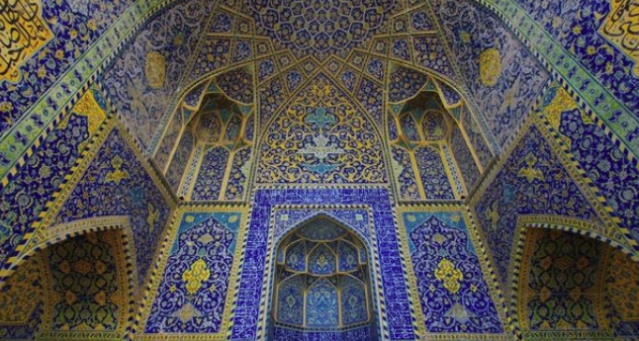
The standalone term ‘Islam’ has become problematic in recent years, particularly in public discourse around religion, culture clash, and terrorism in Western societies. The problem is old: the same term is assumed to refer to the same thing but in fact for different interlocutors in important discussions, it refers to quite different varieties of religious experience. We need a better term for use in the West.
As someone slightly obsessed with correct terminology in my day job (ontology, epistemology and informatisation of clinical medicine), the best conclusion I have reached to date is that the term ‘traditional Islam’ is pretty good. That implies (at least to me) an Islam based in the canonical texts, i.e. Qur’an, Hadith plus or minus Shari’a. Canonical Islam is clearly political and juridical, so the term ‘political Islam’ is redundant, and since the most obvious interpretation of the texts being that Islam is a total programme for a society to which the individual is completely subservient, this is the understanding thereby attached to the term ‘traditional Islam’. One could probably even construct an argument for a capital-T ‘Traditional Islam’ being overtly text-based with ‘traditional Islam’ being practice- or tradition-based (e.g. among people with poor literacy).
None of this would be controversial except for the question of what ‘Islam’ means in Western countries where significant numbers of Muslims reside and which stands civilisationally in opposition to much of what may be found in the Islamic canon; the Muslims in those countries often find themselves in a grey area of undefined religious, political and human rights commitment. Mediatic debates in such places nearly always degenerate into reflexive disagreements, without having first agreed on a meaning for the central term – a serious problem, since it turns out that the majority of western Muslims are hardly practising (some don’t even know if they are Shi’a or Sunni), or else practising a generalised Islam-flavoured fideism in the way that many Christians say they do.
If in such situations, the term ‘tradition Islam’ were introduced to mean the (relatively) full set of book-based beliefs, then I think we’d have entirely different debates. The proof of this is Tariq Ramadan’s “Islam: the Essentials”, ostensibly an apology of Islam for Western minds. His version of Islam magically corrects nearly all the objectionable problems of traditional Islam, to such an extent that there’s almost nothing left to object to, but that may be because there’s almost nothing left. It reads almost too reasonably for a western reader, but for those from Muslim majority countries, it would be impossible to understand it as anything other than a radical reform manifesto, one which would probably land him in prison in some of them (an irony given he is the grandson of Hassan al-Banna). Why did he write such a book? Primarily I think because there are no texts that underpin Islamic belief in the west, so there is no reference for the western Muslim (other than the original canon) or anyone else in the usual media debates to indicate what they are actually talking about. There’s a gaping hole, and he would like to fill it. In any case, the lack of modern texts in Islam would be like the various Christian churches having issued no prayer books, catechism, papal encyclicals or any other updates for many centuries – people might still be arguing about whether a heliocentric solar system or evolution are blasphemous ideas; in Islam, at least the latter still is.
It therefore seems to me that the term ‘traditional Islam’, while not being implicitly accusatory (like ‘radical Islam’, ‘Islamism’ etc), is a mild but useful challenge to Islam’s defenders in the West to either say that they indeed subscribe to the original canonical texts, or else something different, in which case, they need to say what that is – do they subscribe to Ramadan’s version, or something else, or indeed, just an ecumenical belief in ‘god’?
There is really no point wasting time on debating the question of ‘Islam in Europe’, or ‘Islam and the West’ without agreeing such basics first.
